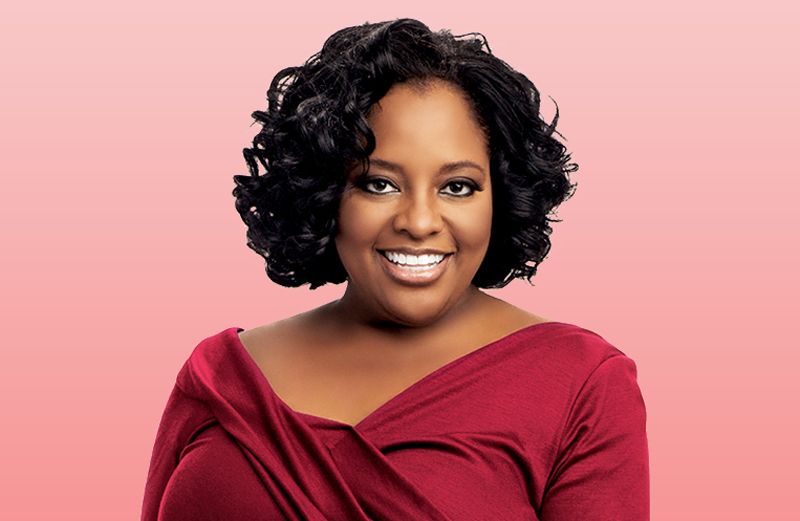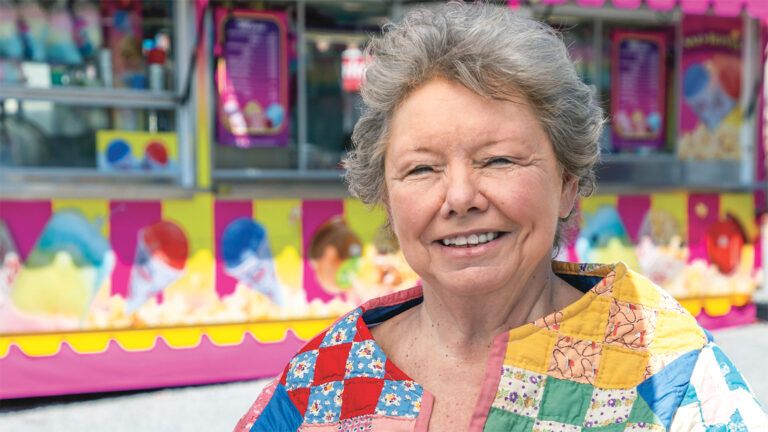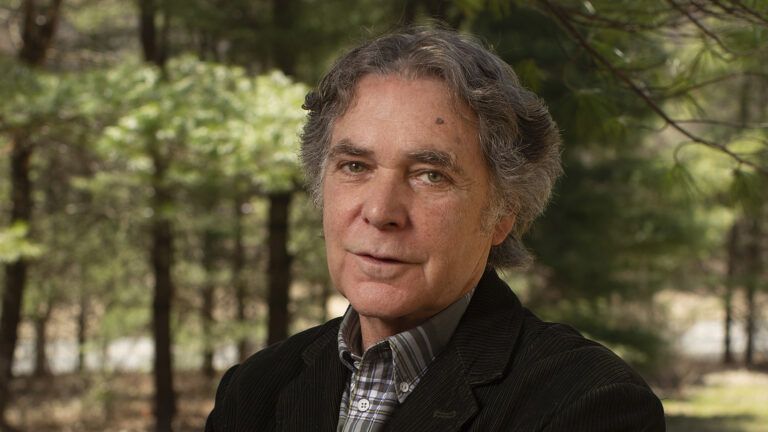I stood in my kitchen, staring at the piece of sweet-potato pie on the counter. I swear I heard it call my name. “C’mon, Sherri, one bite won’t hurt.”
The last year had been a roller-coaster ride. A devastating divorce and a painful battle to gain custody of my two-year-old son, Jeffrey. Then a move from Los Angeles to New York, where, in just a week, I’d start my dream job as a cohost on The View.
My emotions were all over the place. There was no way I was going to deprive myself of some good ol’ fashioned comfort food. I dug in. Mmmm…
Within minutes, my toes were tingling. My vision blurred. A wave of fatigue hit me. This again? I thought. Lately I’d felt these strange symptoms when I ate sweets. But they came and went, so I brushed them off. Of all people, I should have known better.
Diabetes was all over my family like whipped cream on sweet-potato pie. Mom had it. So did her sisters, my sisters, our cousins, aunts, uncles…you get the picture. My mom’s generation would talk about how they’d gotten “the sugar.” Giving it a cutesy nickname made it sound harmless. Really, it was a nightmare.
Some relatives and neighbors had had limbs amputated. They suffered severe vision problems and nerve damage. Still, not one person ate any differently or exercised. The Shepherds loved food, and diabetes wasn’t going to change that.
Not even for Mom. She took wonderful care of my sisters and me, yet never learned to manage her illness. Maybe she was too tired. Maybe she thought the foods she adored—frosted oatmeal cookies, high-sugar juices—were a reward for her hard work. She never really talked about it.
By the time I was in my twenties, my mom had lost all feeling in her feet, and her blood sugar was through the roof. Most days she stayed in bed. She fell into a diabetic coma and passed away when she was just 41 years old. I was 23.
I numbed my grief with buttery waffles and milkshakes, all the calories that I could take in. I packed 197 pounds on my five-foot-one-inch frame. I worried about losing weight.
I didn’t worry about getting diabetes, though. I’d convinced myself that it would never happen to me. No, I was special (no one does denial quite like I do).
For years, whenever I was happy, sad or anything in between, I turned to food. My staples were extra-cheese pizza, barbecue, half-gallons of ice cream… and, of course, my sweet-potato pie. Those things made me feel good.
Till now. What was up with these stubborn symptoms? I put the pie back in the fridge, telling myself, I’m probably just stressed. Still, I was scared enough that I prayed.
Lord, I can’t feel my left big toe. If you make it better, I promise I won’t eat another piece of pie. A few hours later, the feeling came back in my toe. I promptly broke my promise to God and polished off that pie.
The next day my toes were tingling again. My fingers too. I felt like I hadn’t slept. And I was thirsty. Like stranded-in-the-Sahara thirsty. The symptoms were getting worse. I drove downtown to the doctor.
“Sherri, your blood sugar is two-thirty-eight,” she said. “You have diabetes.” For once, I was speechless. I truly believed I’d never get diabetes. My denial was that powerful. “Let me put it this way,” the doctor said. “Do you like wearing those?” She pointed to my five-and-a-half-inch heels.
“Yes, I love my shoes!” I said.
“Well, you won’t love wearing them with your feet cut off. That’s what will happen if you don’t take this seriously.”
She handed me prescriptions for medications and lancets to stick my finger with to get blood samples. “You’ll need to check your blood sugar three times a day for the rest of your life.”
I got in my car and broke down. “Lord, why are you letting this happen to me?” I shouted. Giving up fried steak? Pies? Mac and cheese? Sticking myself hard enough to draw blood? All of it scared me. Then I thought about Mom, how she’d suffered. That terrified me.
You’re probably saying, “Wow, Sherri, I bet you took a good, long look at yourself and changed your eating habits right then and there.” Oh, no. I went home and fixed myself a big plate of pesto pasta. I’m telling you, when I put on blinders, I seal them with superglue!
I sat on the stairs and devoured the pasta. All those carbs spiked my blood sugar. My eyes nearly shut and my head dropped onto my chest.
That’s when I saw it, as clear as the words on this page. My little boy in his bed, clutching a teddy bear. He was crying, staring up at the ceiling. “His mommy’s in heaven,” a voice said. “And he’s looking for her.”
I knew this had to be a vision. It couldn’t be real because Jeffrey was still staying with his dad in L.A. until I got settled. So why was I seeing it?
His mommy is in heaven? I thought, puzzled. Then it hit me: Sherri, do you want your son to grow up without you? My head snapped up. I couldn’t leave Jeffrey like Mom had left me!
Lord, I get it. Finally. I’m the one who let this happen. I was too afraid to face the truth. Too afraid to trust you to help me. That’s gonna change, starting now.
Over the next two days I completely overhauled my diet. I went from cupcakes and pancakes (okay, all cakes) to grilling salmon in…well, nothing. It was like someone put my taste buds in solitary confinement. I had to find a way to make food more exciting.
Wait, how about those sugar-free diabetic snacks I’d seen at the grocery store? I rushed out and bought all the sugar-free chocolate bars, puddings, crackers and candy they had in stock. “Tastes great!” the label said. Aha! I could have my treats after all.
What the labels didn’t mention were the side effects (at least for me). The stomach cramps and nausea were almost instant. So much for that.
Well, I may be slow to the start, but when I get going, I catch up quick. That night I scoured the web for diabetic-friendly foods and recipes. I even printed out a list of safe foods to take with me the next morning—my first on The View.
The morning went better than I imagined as far as work went. Food-wise? I’m not gonna lie, it was hard! The spread they put out for the crew had every goodie imaginable, all of my favorites. But I resisted. “If you take in junk, you’ll feel like junk,” I told myself.
I ate a small grilled-chicken salad with veggies. I had to look at food as fuel.
The next few months I experimented—trying foods at work, making a few recipes at home (and believe me, I’m no cook, so they had to be easy-peasy). Finally, I came up with some go-to meals.
For breakfast, an egg-white omelet with spinach and mushrooms (trust me, it’s tasty). For lunch, Greek yogurt with walnuts and raspberries, or a lean turkey tortilla wrap with a side of grapes. Apples and peanut butter made a great, filling snack.
And I learned how to spruce up dinners like plain salmon with fresh herbs. The healthier I ate, the less I craved the junk.
I got movin’ too! I didn’t have much time for the gym, not with a two-yearold and a new job, so I made sure I was active throughout the day. I walked my dogs every morning and walked to work. Running around after Jeffrey was its own workout! Six months after I was diagnosed, I was down 35 pounds.
When I ate out I made sure to tell the waiter, “No bread, please.” If weight had been my only worry I could’ve had some bread and done an extra mile with my dogs the next day to make up for it. But I couldn’t compensate for the wrong foods. “That piece of bread tonight could mean a lost toe tomorrow,” I told myself.
By 2008, one year after I started on The View, I weighed 149 pounds. I even went on national TV in a bathing suit. Me, the Queen of Denial!
In 2010 I married a wonderful man, Sal, who loves Jeffrey and me so much that he isn’t afraid to tell me the truth. Not long after our wedding, I started keeping a food journal. If I ate something that wasn’t on my list, I’d write down how it made me feel (usually dreadfully exhausted).
One day Sal asked, “Honey, do you know what really happens when you don’t eat right?”
“I don’t feel well,” I said. “I end up sleeping for hours and…”
He stopped me. “No, Jeffrey and I get the brunt of it. You’re just not yourself.” I thought back to a few days earlier when I’d had a piece of cake and came home so cranky that I picked a fight with Sal. Even Jeffrey had asked, “Mommy, are you mad at me?” Point taken.
I forgave myself for the slipup and got right back to business. You’ve got to do that if you fall off track. A strong support system helps. Besides Sal and Jeffrey, I’ve got the ladies on The View.
On set, if they see me reaching for cookies or ice cream, they don’t say, “Hey! Don’t eat that!” They say, “Hey, Sherri, how’s that going to make you feel later?” Exactly.
Today, six years after my diagnosis, I’ve kept off those 50 pounds and I’m in the best shape I’ve ever been. Oh, it’s challenging to manage my diabetes, but love—and trust—are great motivators. I plan to be here for Sal and Jeffrey a long, long time.
Download your FREE ebook, Paths to Happiness: 7 Real Life Stories of Personal Growth, Self-Improvement and Positive Change





